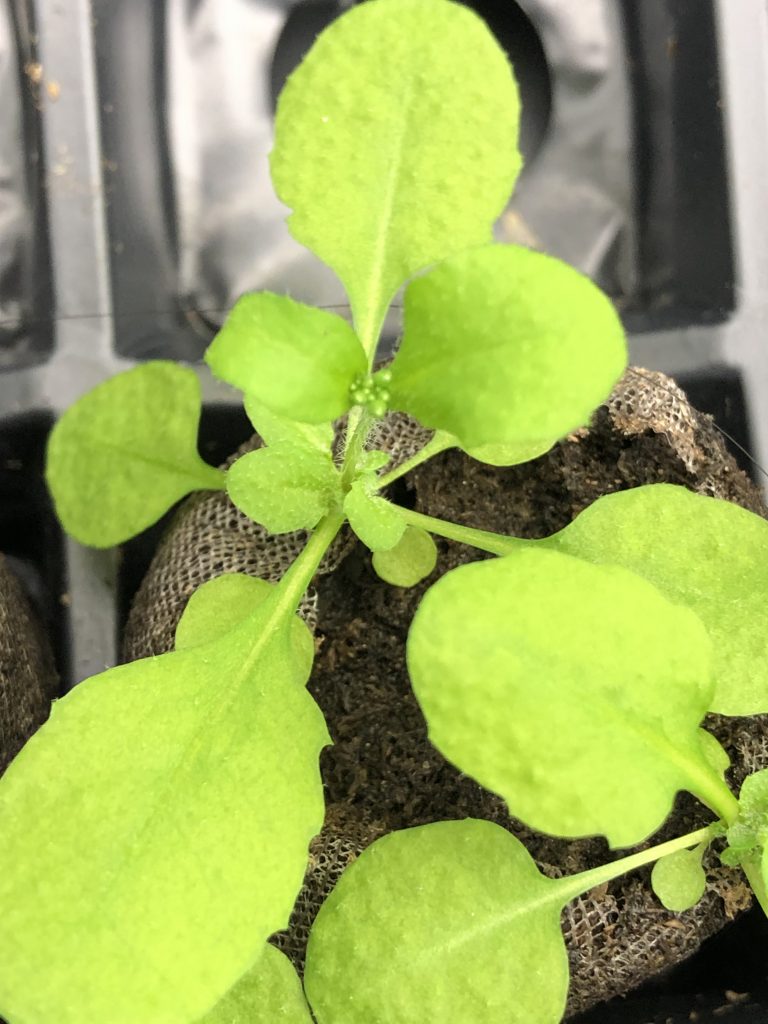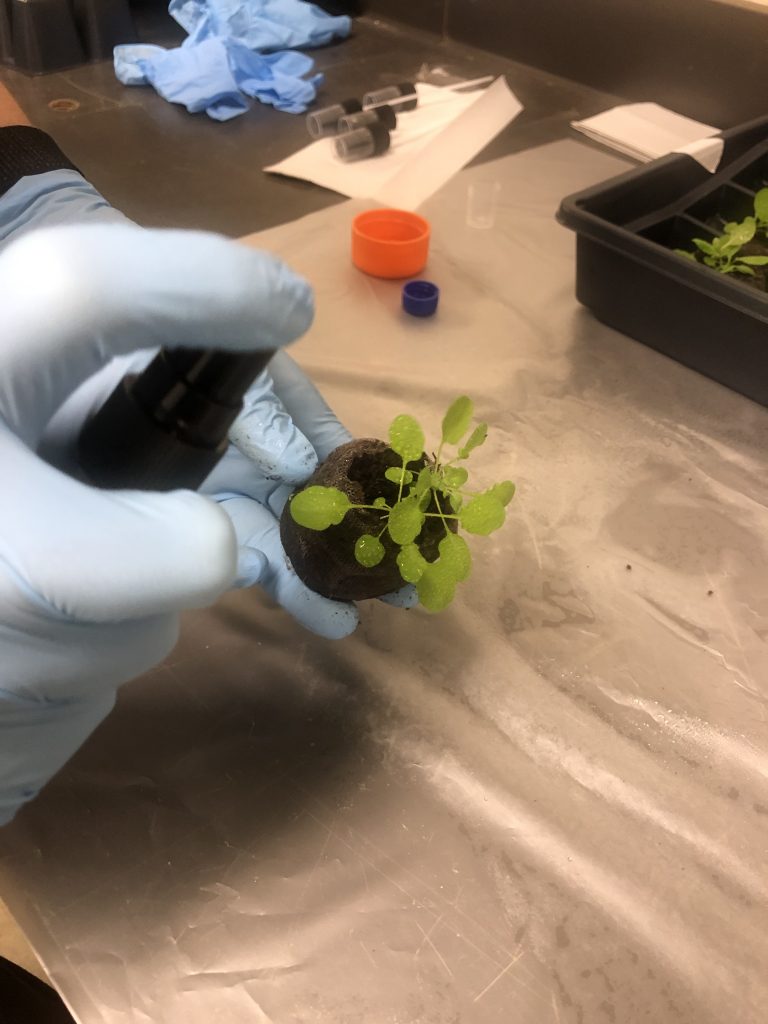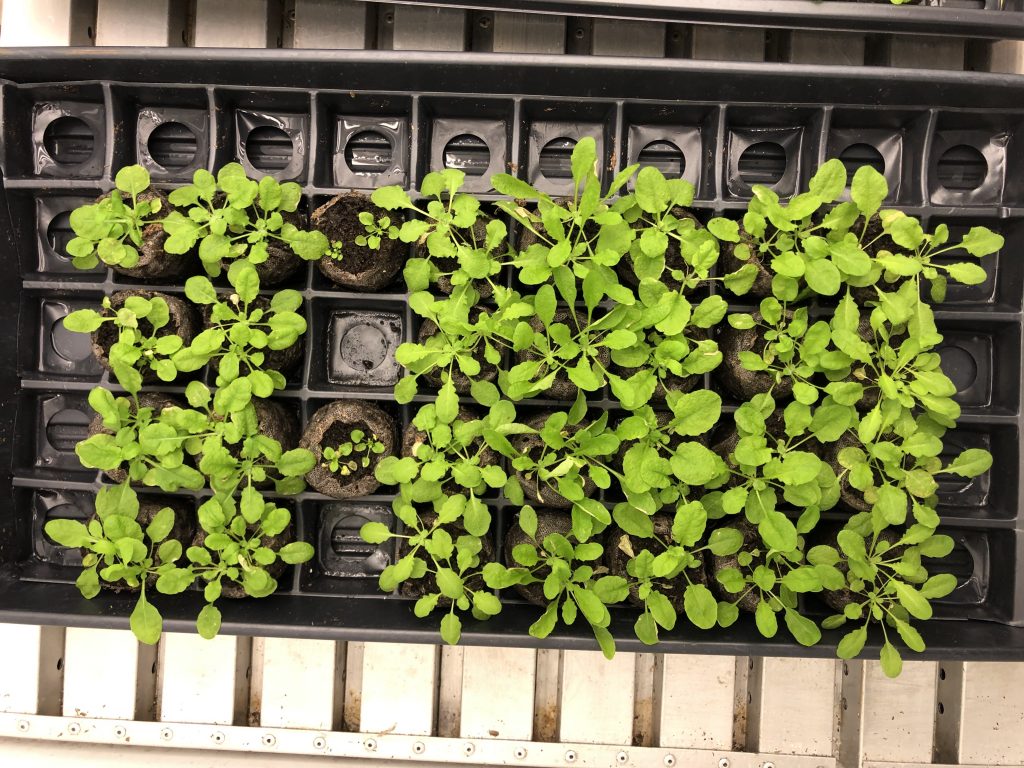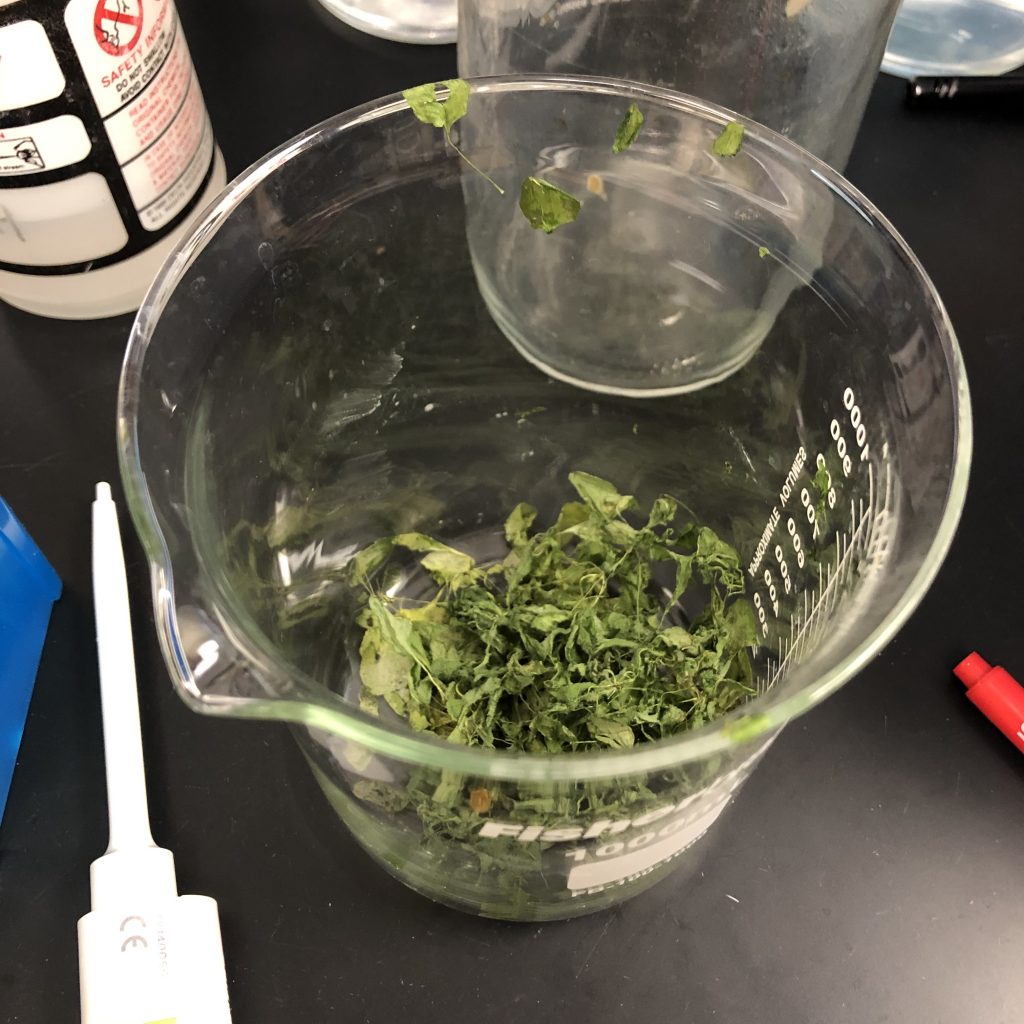Mick starts work on his PhD dissertation
The leaves of Arabidopsis thaliana are only a few millimeters long, but they hold some big questions. For his dissertation, Mick plans to answer a few of them, namely: Does polyploidy differentially affect a plant’s susceptibility to pathogens, and if so, is that due to a differential microbiome composition in polyploid plants?
More than 50 percent of all plant species, including A. thaliana, are polyploid, meaning that they have more than the usual number of pairs of chromosomes. These plants are often associated with novel or transgressive phenotypes, such as increased size and, potentially, different microbiomes. In fact, most major food crops are polyploid — including wheat, sugar cane, potatoes and bananas — implying the genetic condition’s practical the evolutionary advantages.
In humans, knowledge of the bacteria, fungi and other microbes in the gut has informed our understanding of healthy digestion and immune system responses, so could the same be true for plants and their ability to withstand pathogens and pests? Mick is planning to find out.
The answer starts with trays and trays of A. thaliana and a synthetic bacteria community created by Elijah Mehlferber in the Koskella lab. The 16 different bacteria composing this microbiome are sprayed onto the plants which are left to grow until the leaves are plucked and frozen for later observation and RNA -sequencing. For some of the plants, before the samples are collected, a pathogen is introduced to see how the plant will fare.
If all goes well, Mick will have his results in a few months. But in the meantime, he’s starting a second experiment to see if polyploidy and microbiomes can affect resistance to herbivores. A shipment of cabbage loopers (Trichoplusia ni), named for the way the moth larvae arch their backs into a loop when they crawl, is en route to the lab. It has been relatively well documented that animals avoid feeding on plants in the same family as Arabidopsis (Brassicaceae) — so with polyploid species like A. thaliana, Mick thinks herbivores may like it even less.



